Anarchic Discussions: Free Market Education
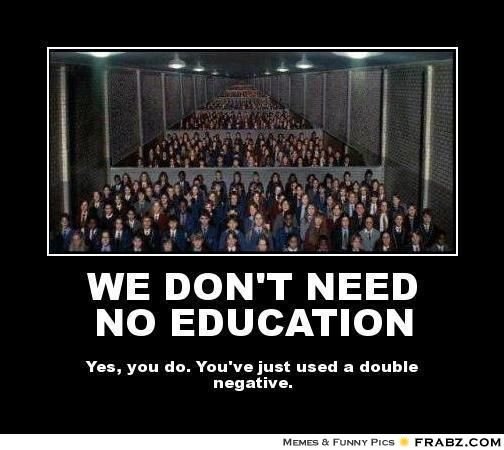
written off the back of watching this video:
https://www.youtube.com/shared?ci=YUl6cx7KY-8
I recently watched this video from John Oliver, and for about 13 minutes, it was an amusing synopsis of how mixed funding in education is frought with corruption. It them goes on to do what is always done these days - blame the free market. It incensed me significantly, as it dismisses so much inconvenient data, and over simplifies an issue of subtle complexity. So, I decided to write this piece to discuss the many ways Education in the states is socialised, and to propose a true free market system.
Charter Schools are NOT an Examples of Free Markets
First off, no one can reasonably claim that a market whose operators are approved & in part funded by the state is a "free market". It is a government regulated & partially socialised market by definition.
Secondly, as it does get public funding, it has the ability to gain large rewards for things the state can't see well. As the state is not every parent, but some officials in a government building, it doesn't know what kids are actually learning directly. Meanwhile, the good parents should know what their kids have learned, but if they aren't happy with the level of education being given, they can't do much to limit the school's overall funding.
Why Private Schools Function Well
In a proper private school system, parents know what their kids learn and what happened to them because they are paying for it, and any parent who wants to get both value for money and their children will make it their business to know what their kids have been taught. As such, if something happens to make the parent lose confidence in the school, their children can be transferred to a new one. This fixes the funding issue & the value issue.
The Many Forms of Socialist Education
People think initially only the schools themselves represent education in the USA. I understand why they think this, but they are just a major component of the system. If education were a gourmet meal, the schools themselves are the protein on the plate. There are still a number of other sides and sauces to consider to complete the dish.
Standardising Curriculums
Standardised curriculums exist within most public education systems, and these are usually determined by government policies. This makes them public systems, and therefore socialised curriculums. Things like the common core policy have done wonders to muddle our understanding, and have generated some amazingly retarded pictures, and some absolutely hysterical content for memes.
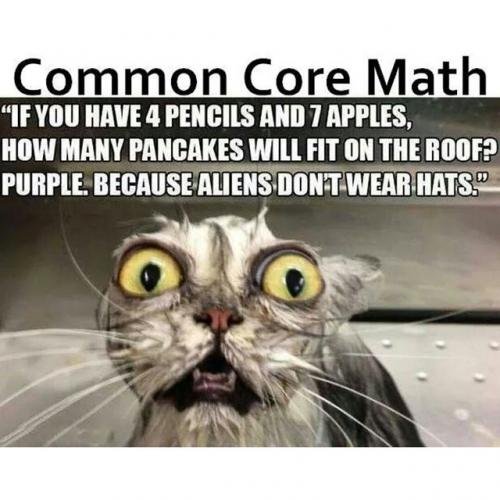
Textbook Market Issues
These standards are then supported by textbooks, mass produced by a limited number of suppliers, which usually summarise known "facts" for children's minds to consume. To give you an idea of the situation from a market scale perspective, globally there are under 550 publishers of educational textbooks (and 7 billion people to service). In the USA, there are only 100 publishers who produce academic textbooks (source for these figures are from http://www.publishersglobal.com/ btw) The list shrinks further when we are talking K-12, or educational textbooks, which are produced by only 82 companies. Here is that list:
http://www.publishersglobal.com/directory/united-states/subject/education-publishers/
You may note, a number are from a company called Pearson (one of the "big three" in education publishing), most of them are for niche markets (foreign languages, developmental difficulties, gender studies, PE materials, etc). And many are subsidiaries of one of these http://readingprograms.info.s3-website-us-east-1.amazonaws.com/ed_pubs.html These first three produce the majority of materials we have all read in textbooks as kids, while the fourth produces educational and fun materials to supplement kids knowledge.
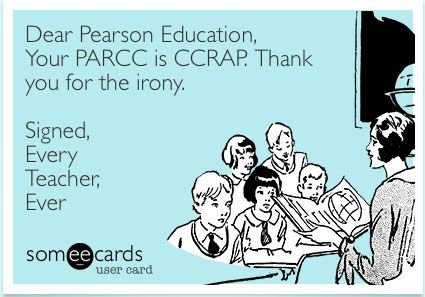
Public schools contract out their textbook needs en masse. What one board decides, all its schools get. These publishers get huge contracts, and fit the curriculum according to their customers (in this case the state). These publishers then become recommended providers, even when there are serious concerns over what is being taught to kids. In other words, having public education decide curriculum and what textbooks can be used isolates what information is being taught and limits what we can learn as kids. Or more bluntly, we are being presented facts in most courses as if they are all that we need to think.
Standardised Testing is Socialist & Corporatised Education
Testing and the measurement of student performance today are also standardised in priciple by the state and produced primarily by Pearson again (thanks again, John Oliver: https://www.youtube.com/shared?ci=96qfW7D2dtw). I'm all for checking kids have learned basic skills, but there are serious issues in the tests, as the video shows, and again, I argue that it's due to a total lack of market competition, but this time in the standards and test suppliers themselves.
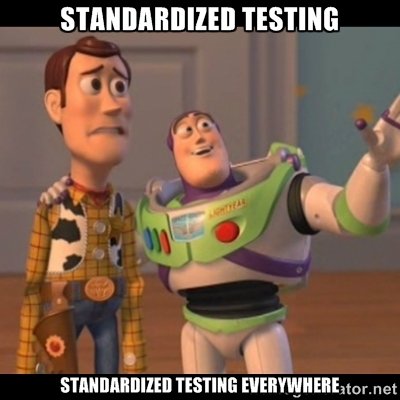
When curriculum and measurements are standardised for education, it presumes that standard will work consistently for all schools and students, and that the standards actually work. We should have learned by now that "one size fits all" strategy rarely fits anybody well, and education isn't any different.
Free Market Education: The Rules
So now, let's see what a real free market system would produce. Here are the rules for any free market, with particular attention to education needs and goals.
Rule 1
You have responsibility for your actions and no one else's. Ergo, if you decide to have a child, you must take responsibility for them & their needs/actions until they are ready to take that responsibility on themselves. If you want an education as well, then do something to get it.
Rule 2
Everyone has no right or authority to use coercion or aggression over another or their property to achieve any goal.
Rule 3
All entities must adhere to any contracts they make or sign, or face the penalties as provided in the contract, or a private courts of law.
That's the rule list. It's simple, yet comprehensive.
Free Market Education: Implementation
The following elements of education today would need to become markets in their own right:
- Oversight auditing firms for schools
- Educational standards for schools
- Textbooks (right now it's effectively a regional monopoly system)
- All schools
- Testing firms and systems
Those are the five big aspects to education, and encompass it's needs.
How to make Education more Flexible & Adaptable
The idea of fixed enrollment periods could be scrapped - instead of people enrolling all at once, we could enroll kids whenever a school decides to start term. This opens up a new market, to whit, the exchange market. This is where parents want to switch their kid to a new school that has failed them, and fast. By having schools start and end in an decentralised manner, schooling could begin whenever you want, and your child would not miss out on their education.
Opening up the Test Markets
The idea of testing could be extended - instead of just a few test companies generating all the test, schools can pick from a number of providers individually, and provision of subject level tests could become niche markets in their own right, potentially crafted by professors teaching or respected the field. Those standards that produce positive experiences in the user, and work to accurately measure performance and ability, will be the ones adopted by the wider market.
Auditing & Accountability
Auditing could be done by parents as groups and/or by higher education centers. The colleges should care that the students they are teaching in a few years time are capable of learning the material, and could audit schools to determine if their students should be even considered for appointment in future. Why waste valuable time interviewing students for positions if you know their school was unable to teach the material needed, or didn't include it on the curriculum?
Parents should care that their kids can look after and think themselves & be successful in life, or if necessary, look after their mom and dad in their old age. Both groups want to audit what happens at a school, and I see no reason why they shouldn't work in tandem for that purpose.
Those that fail to meet the standards agreed to in a contract would immediately be forced to reimburse parents, who probably would have withdrawn their children by then. If standards are not agreed in this way, a parent may remove a student, say if their desired college refuses to accept students from that school for poor ability. This kind of system generates accountability directly without government intervention, as it creates known market consequences for failures in performance, and will cause bad entities to fail due to bad educational results.
A Brief Mention on Special Needs
The tricky issue of developmentally challenged children can be addressed via the decentralised standards that would be available. Niche markets would spring up to provide the best methods of training and teaching children with special needs. Psychologists could be contracted to design curriculums for the purpose of helping people get past their conditions or work around them, and said systems of education could be provided as a packaged service to existing schools or start up charities for that purpose.
Free Market Education - Funding
Funding for schools will come from parents,and grants from families, as they do for private schools today. If your school gave you a great education, you might consider yourself in its debt for life, and decide to provide others with that education level by granting assets upon your death, or even before. Such bequeathed funds can be limited how you see fit, be it to support the best and brightest from just the improverished walks of life, to providing a basic level of skills knowledge to survive in society and/or the wilderness, to a funding programme for new technology and equipment.
Schools themselves would be competing for students to teach, with parents who can afford to enroll them. As such, if their prices are too high, they will not gain many students, and if the value isn't there in the education, they will lose those remaining students as well. A school with a good reputation will still need to price itself competitively, or they will lose their customers too. If they reduce prices, they can take on more students to make up the costs, pleasing existing customers and attracting new ones.
For those that decide a school is still too expensive, the materials themselves to learn from are as cheap as what is freely available online, and as expensive as their budgets will allow. They can therefore home school children, or school them communally and pool what limited resources exist locally if even home schooling is too pricey.
Charities for education will still exist as well, and people who care about others education can donate to such entities, who then become responsible for financing schools for the downtrodden in society. Alternatively, some schools may way fees partially or entirely for students, by providing grants or scholarships for them.
An anecdotal aside...
I personally managed to get much of my private education purely because I was capable enough to learn, and had a damn good singing voice. It was my voice that then paid for a fair portion of my secondary education, as I spent 10 hours a week performing for the National Cathedral Boys Choir, and that's not including practice sessions, tours, and special events.
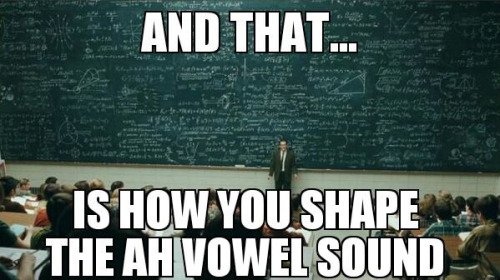
Such systems of ability, work, and talent driven scholarships work well to educate people who could never have afforded that degree of knowledge on their own, but can provide something back with it.
Free Market Education - Risks & Managing Them
There are risks associated with any activity, and education is no exception. Investment in it now could be positive in future, but it also could be negative if it's against knowledge no longer of value. The only way for individuals to chose what risks are acceptable to them is to give those choices to them directly. Only the individual can decide for themselves and those under their charge what is their best option.
There are ways to mitigate those risks for schools - horizon planning based on new tech discoveries and inventions, basic standards adopted by groups of institutions, requiring critical thinking examples as well as well sourced facts, these and other systems of forecasting and risk management can be employed at a parent, school, and market level by any actor willing to do research in their spare time.
Conclusion
The complex construction I have proposed as a system for free market education isn't the only answer out there, but that is also my point. The state is trying to judge and provide education using a single model, based on a nice sounding system with a horrific implementation. They blame the teachers for failing students, or the schools themselves, but they rarely blame the system itself (except during election years). I blame everyone who thinks someone else should fix the problems for them, when it's a problem only they can really fix for themselves.
Congratulations @lupinate! You have received a personal award!
Click on the badge to view your Board of Honor.
Congratulations @lupinate! You received a personal award!
You can view your badges on your Steem Board and compare to others on the Steem Ranking
Vote for @Steemitboard as a witness to get one more award and increased upvotes!